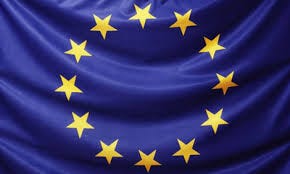Greece: Europe's Defining Opportunity

All of the players are in place.
The European Union faces its best opportunity since the Marshall Plan to cure its ills and thrive--or slowly fade into disunion and permanent decline.
Let’s consider those players:
· Greece, with no way out of a form of permanent slavery.
· The Troika:
Germany, weary of carrying Europe on its shoulders.
The International Monetary Fund (IMF) admitting a bailout is unfair, unsustainable and a toss of good money after bad.
The European Central Bank, with little option but the choice between a bad decision and a disastrous one.
· The European Union Member nations, terrified of where all this is going, who is next and what of those who are paying their debts?
Without seizing that opportunity, Europe is faced with the ‘or slowly fade’ option. It’s there to be seized and Greece is the catalyst. Italy may be the next to fall and Spain and Portugal face decades of wearying austerity before (and if) they recover.
Nine of the 29 EU members still maintain their currency and (after witnessing Greece) will be reluctant ever to join. Thus the euro itself is at stake and the euro is the only tool in the box to maintain the union.
The time is now and the tools are at hand.
The euro can bring Europe back. Consider this:
The EU, like America, has inherent weaker and stronger states. It will probably always have them, but America has a nation-wide income tax so that stronger states (California, New York, Illinois) contribute to the weaker (Alabama, Mississippi, Louisiana). The EU has no such monetary umbilical cord and likely never will.
What the EU does have is (for the most part) a common currency and a central bank to control that currency.
So now we need to take time-out for a moment and discuss money itself—the euro in particular. The EU has been printing and loaning its way out of its endemic troubles for a long time. But there are two ways to print and distribute money:
The first is print and distribute to bail out bad bank debt and/or loan euros to weak debtors-- both of which weaken the euro and cause inflation. Mario Draghi (who heads the European Central Bank) has done both. The banks he recently threw money at were weak debtors (through horribly under-secured loans) as were the nations his own ECB threw money at in collaboration with the IMF. Little or none of that money will ever come back as things stand—a totally wasted effort—no useful product comes of that.
Thus Angela Merkel has had enough and is unwilling to see Germany continue down that road. Christine Lagarde (IMF) looks to Washington and Mario Draghi is still wondering why his ‘quantitative easing’ program in Europe was a bust.
The second is to invest money in schools, technological research, much needed infrastructure, industrial campuses, air and shipping ports, consumer-goods manufacture and small business. A product emerges from that investment, be it jobs, an educated workforce, toilets that flush or a growing, tax paying middle class.
So my solution is very Marshall Plan oriented:
· No nation (including Greece) gets debt forgiveness, but they get barrelsful of investment euros as outlined above.
· No nation gets to feed at that trough without downsizing and modernizing its bureaucracy, tightening its tax codes and accepting very close scrutiny on how the money is spent.
· All nations at risk get appropriate (to their circumstance) loan repayment extensions at zero interest.
Yes, the investor class will have to go outside for an extended recess, but they will get paid over time and (most) of the EU will recover some of its reputation—which is bound to go down the drain by other measures.
Meanwhile, the bridge-loan to Greece allows the time to get Europe’s house in order and governments to come in line. There’s not likely to be another chance other than to rebuild Europe on the ashes of failure. The history of the Marshall Plan has already set the template.
Some interesting things are happening in Europe to support such a solution. Both Italy (Matteo Renzi) and Greece (Alexis Tsipras) have young, very popular prime ministers who came to power to shake up the old corrupt and blindingly bureaucratic governments. The citizens of both countries have been virtually beaten into submission by the paperwork necessary to get a job, break into the ‘old-boy’s’ club or start a small business. That must end.
Renzi and Tsipras have the political wind at their backs and the support of those who count—the young, the ambitious and the unemployed. If that hopeful and flickering candle is allowed to be blown out by circumstances in Greece, the entire EU experiment is at risk.
Is there no one in Europe old enough to remember the ashes of WWII?
Europe’s current problems are a cake-walk compared to those times.
Given a disaster of unknown proportion, Harry Truman and George Marshall turned defeat upside down into the thriving Europe that now seems unable to find its ass with both hands.
C’mon Angela, Mario and Christine—take the troika reins in hand and kick a tired Europe into a gallop.
